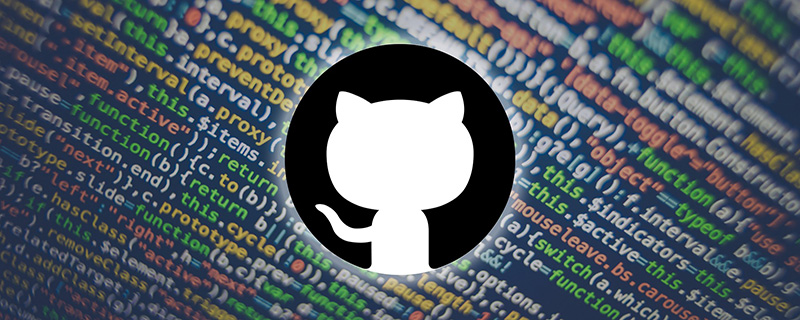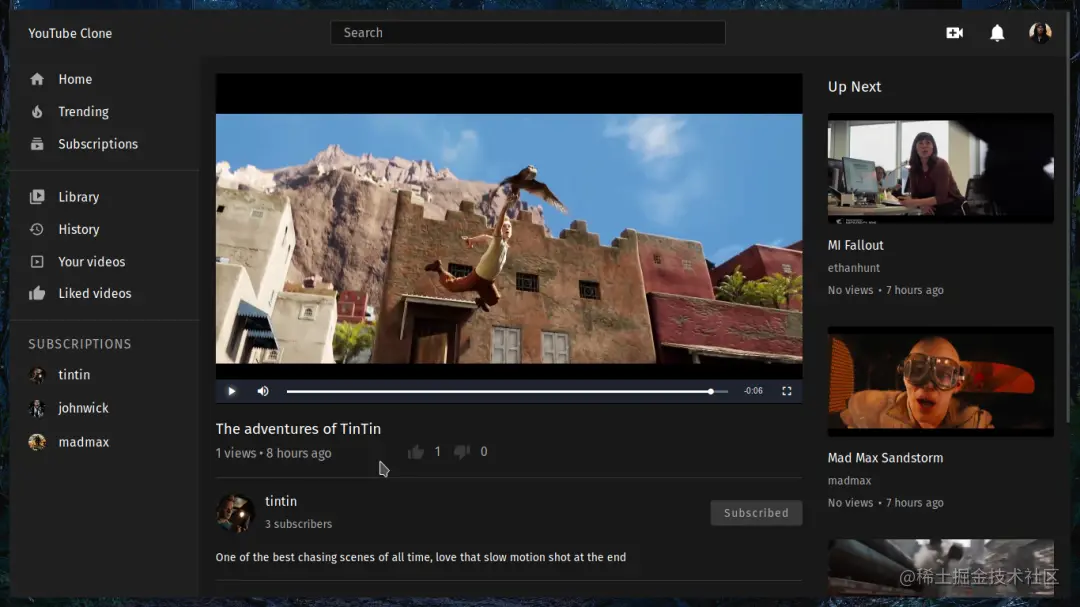 Technology peripherals
Technology peripherals AI
AI Private data and deleted content can be permanently accessed, GitHub official: intentionally designed
Private data and deleted content can be permanently accessed, GitHub official: intentionally designedRecently, a piece of news shocked the open source community: deleted content on GitHub and data in private repositories can be permanently accessed, and this was intentionally designed by the official.
Open source security software company Truffle Security detailed the issue in a blog post.

Truffle Security introduces a new term: CFOR (Cross Fork Object Reference): when a repository fork has access to sensitive data in another fork (including data from private and deleted forks) A CFOR vulnerability exists.
Similar to unsafe direct object references, in CFOR, users can directly access commit data by providing the commit hash value, otherwise the data is invisible.
The following is the original content of the Truffle Security blog.
Access data from a deleted fork repository
Imagine the following workflow:
Fork a public repository on GitHub;
Commit the code to your fork repository;
-
You delete your fork repository.

So, the code you submitted to the fork should be inaccessible, right, because you deleted the fork repository. However, it is permanently accessible and not under your control.
As shown in the video below, fork a repository, submit data to it, and then delete the fork repository, then the "deleted" submitted data can be accessed through the original repository. 
This situation is common. Truffle Security investigated 3 frequently forked public repositories of a large AI company and easily found 40 valid API keys from the deleted forked repositories.

Accessing data from a deleted repository
Consider the following workflow:
You have a public repository on GitHub;
User forks your repository;
You commit data after they fork, and they never sync their forked repository with your updates;
You delete the entire repository.

Then, the code you submitted is still accessible after the user forks your repository.
GitHub stores repositories and forked repositories in a repository network, with the original "upstream" repository acting as the root node. When a forked public "upstream" repository is "removed", GitHub reassigns the root role to one of the downstream forked repositories. However, all commits from the "upstream" repository still exist and are accessible through any forked repository.
This situation is not unique, something like this happened last week:
Truffle Security submitted a P1 vulnerability to a large technology company, showing that they accidentally submitted an employee to GitHub The key to an account with critical access to the entire GitHub organization. The company immediately deleted the repository, but because the repository had been forked, commits containing sensitive data were still accessible through the forked repository, even though the forked repository was never synchronized with the original "upstream" repository.
That is, any code committed to a public repository is permanently accessible as long as the repository has at least one fork repository.
Access private repository data
Consider the following workflow:
You create a private repository that will eventually be made public;
Create a private build of that repository (via fork) and Commit additional code for features that are not intended to be public;
You make your "upstream" repository public and keep your fork repository private.

Then, private features and related code are available for public viewing. Any code committed between the internal fork of the repository where you created the tool and the open source of the tool will be accessible through the public repository.
After you make your "upstream" repository public, any commits made to your private fork repository will not be visible. This is because changing the visibility of a private "upstream" repository results in two repository networks: one for the private version and one for the public version.
Unfortunately, this workflow is one of the most common methods used by users and institutions when developing open source software. As a result, confidential data may be inadvertently exposed on GitHub public repositories.
How to access data?
Destructive operations in the GitHub repository network (like the 3 scenarios above) remove references to commit data from the standard GitHub UI and normal git operations. However, the data still exists and is accessible (commit hash). This is the link between CFOR and IDOR vulnerabilities.

commit hashes can be brute-forced via GitHub's UI, especially since the git protocol allows the use of short SHA-1 values when referencing commits. A short SHA-1 value is the minimum number of characters required to avoid a collision with another commit hash, with an absolute minimum of 4. The key space for all 4-character SHA-1 values is 65536 (16^4). Brute forcing all possible values can be achieved relatively easily.


Interestingly, GitHub exposes a public events API endpoint. You can also query commit hashes in an event archive managed by a third party and keep all GitHub events from the past ten years outside of GitHub, even after the repository is deleted.
GitHub Provisions
Truffle Security submitted its findings to GitHub officials through GitHub’s VDP program. GitHub responded: "This is by design" and attached documentation.



Documentation: https://docs.github.com/en/pull-requests/collaborating-with-pull-requests/working-with-forks/what-happens-to- forks-when-a-repository-is-deleted-or-changes-visibility
Truffle Security applauds GitHub for being transparent about its architecture, but Truffle Security believes: Ordinary users view the separation of private and public repositories as a security boundary, and Public users are considered incapable of accessing any data in private repositories. Unfortunately, as mentioned above, this is not always the case.
Truffle Security concluded that as long as a fork repository exists, any commits to that repository network (i.e. commits on the "upstream" repository or the "downstream" fork repository) will persist forever.
Truffle Security also makes the point that the only way to securely fix compromised keys on public GitHub repositories is through key rotation.
GitHub’s repository architecture suffers from these design flaws. Unfortunately, the vast majority of GitHub users will never understand how repository networking actually works, and will compromise security as a result.
Original link: https://trufflesecurity.com/blog/anyone-can-access-deleted-and-private-repo-data-github
The above is the detailed content of Private data and deleted content can be permanently accessed, GitHub official: intentionally designed. For more information, please follow other related articles on the PHP Chinese website!
 GitHub项目分享:10款点开就能玩的开源在线游戏Mar 24, 2023 pm 07:15 PM
GitHub项目分享:10款点开就能玩的开源在线游戏Mar 24, 2023 pm 07:15 PM本篇文章在GitHub上给大家整理总结10 款开源的在线游戏,点开就能玩的那种,大部分游戏支持手机端玩耍,简直不要太爽!
 github是什么Mar 24, 2023 pm 05:46 PM
github是什么Mar 24, 2023 pm 05:46 PMGitHub是一个面向开源及私有软件项目的托管平台,可以让开发者们在这里托管自己的代码,并进行版本控制。GitHub主打的是开源项目与协作,通过这个平台上的开源项目,开发者们可以查看其他开发者的项目源代码,并进行交流和学习。
 【总结】一些可能导致GitHub不能打开的原因和解决方法Mar 27, 2023 am 11:33 AM
【总结】一些可能导致GitHub不能打开的原因和解决方法Mar 27, 2023 am 11:33 AMGitHub是一个非常受欢迎的版本控制和代码托管平台。然而,有时候我们可能会遭遇到无法访问GitHub的问题。这是因为GitHub是一个全球性的平台,受到地理位置、网络状况、网站设置等因素的影响。本文将介绍一些可能导致GitHub不能打开的原因,以及解决这些问题的方法。
 聊聊github中怎么上传项目和文本文档Mar 27, 2023 am 10:53 AM
聊聊github中怎么上传项目和文本文档Mar 27, 2023 am 10:53 AMGitHub是一个基于Git的代码托管平台,被广泛用于开源社区和企业内部代码管理。在GitHub上可以上传项目和文本文档,但是它所支持的格式和上传方式略有不同。
 github中怎么只下载一个文件夹中的内容Mar 27, 2023 am 10:53 AM
github中怎么只下载一个文件夹中的内容Mar 27, 2023 am 10:53 AMGitHub是一个流行的代码托管平台,用于开发人员协作和版本控制。作为开发人员,您可能需要从其他开发人员的GitHub存储库中只下载特定文件夹的内容。在本文中,我们将演示如何在不下载整个存储库的情况下只下载GitHub存储库中的一个文件夹。
 【整理分享】7个有趣又实用的开源GitHub项目Nov 30, 2022 pm 06:18 PM
【整理分享】7个有趣又实用的开源GitHub项目Nov 30, 2022 pm 06:18 PM本篇文章给大家整理分享7个有趣又实用的开源项目,这些项目都已经收录到GitHub上的,希望对大家有所帮助!
 聊聊如何删除GitHub库中的一个文件夹Mar 27, 2023 am 11:33 AM
聊聊如何删除GitHub库中的一个文件夹Mar 27, 2023 am 11:33 AMGitHub是一个非常受欢迎的版本控制系统,它允许用户在互联网上存储和共享自己的代码库。它是程序员的必备工具之一。但是,有时候我们可能需要删除GitHub库中的一个文件夹。本篇文章将介绍如何删除GitHub库中的一个文件夹。
 详解将Github项目部署到服务器上的步骤Mar 27, 2023 am 10:53 AM
详解将Github项目部署到服务器上的步骤Mar 27, 2023 am 10:53 AMGithub是目前全球最大的开源社区,很多程序员都会将自己的代码托管在Github上,借助其方便的版本控制和协作功能。然而,Github上的项目仅仅是代码,要把它部署到服务器上运行,需要一些额外的工作。本文将为大家介绍具体的操作步骤。


Hot AI Tools

Undresser.AI Undress
AI-powered app for creating realistic nude photos

AI Clothes Remover
Online AI tool for removing clothes from photos.

Undress AI Tool
Undress images for free

Clothoff.io
AI clothes remover

AI Hentai Generator
Generate AI Hentai for free.

Hot Article

Hot Tools

SublimeText3 Chinese version
Chinese version, very easy to use

SublimeText3 Mac version
God-level code editing software (SublimeText3)

MantisBT
Mantis is an easy-to-deploy web-based defect tracking tool designed to aid in product defect tracking. It requires PHP, MySQL and a web server. Check out our demo and hosting services.

Dreamweaver CS6
Visual web development tools

DVWA
Damn Vulnerable Web App (DVWA) is a PHP/MySQL web application that is very vulnerable. Its main goals are to be an aid for security professionals to test their skills and tools in a legal environment, to help web developers better understand the process of securing web applications, and to help teachers/students teach/learn in a classroom environment Web application security. The goal of DVWA is to practice some of the most common web vulnerabilities through a simple and straightforward interface, with varying degrees of difficulty. Please note that this software









